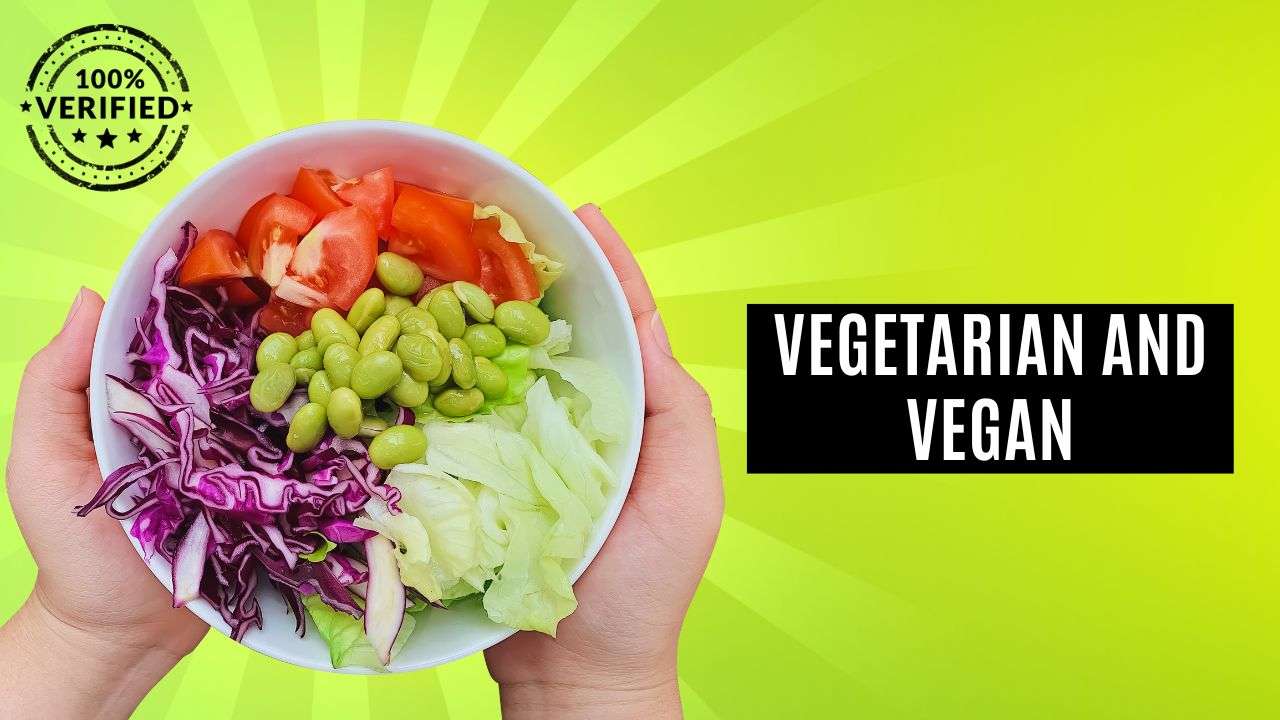Vegetarian and vegan diets have become increasingly popular in recent years, but many people still don’t understand the differences between them. While both diets eliminate meat, fish, and poultry, there are some key differences that set them apart. In this article, we’ll explore those differences and help you decide which diet might be right for you.
What is a Vegetarian Diet?
A vegetarian diet eliminates meat, fish, and poultry from your diet, but still includes other animal products such as milk and eggs. There are several different types of vegetarian diets, including:
- Lacto-ovo-vegetarian: This diet includes dairy products and eggs.
- Lacto-vegetarian: This diet includes dairy products, but not eggs.
- Ovo-vegetarian: This diet includes eggs, but not dairy products.
- Pescatarian: This diet includes fish, but not meat or poultry.
Vegetarian diets can provide many health benefits, including a reduced risk of heart disease, type 2 diabetes, and certain types of cancer. They are also often more environmentally sustainable than meat-based diets.
What is a Vegan Diet?
A vegan diet eliminates all animal products from your diet, including meat, fish, poultry, dairy, and eggs. Instead, vegans rely on plant-based foods such as fruits, vegetables, grains, and legumes for their nutrition.
Vegan diets can also provide many health benefits, including a reduced risk of heart disease, type 2 diabetes, and certain types of cancer. They are also often more environmentally sustainable than meat-based or vegetarian diets.
Key Differences Between Vegetarian and Vegan Diets
While both diets eliminate meat, fish, and poultry, there are some key differences between them:
- Dairy and eggs: Vegetarian diets include dairy products and eggs, while vegan diets do not.
- Nutrition: Vegan diets require more planning and attention to ensure that you are getting all of the necessary nutrients, particularly protein, calcium, and vitamin B12.
- Environmental impact: While both diets are more environmentally sustainable than meat-based diets, vegan diets have a lower environmental impact than vegetarian diets due to the elimination of dairy and egg production.

Which Diet is Right for You?
The decision to follow a vegetarian or vegan diet is a personal one, and there is no one-size-fits-all answer. It’s important to consider your personal beliefs, health goals, and lifestyle when making this decision.
If you are considering a vegetarian or vegan diet, it’s important to consult with a healthcare professional or registered dietitian to ensure that you are getting all of the necessary nutrients. With proper planning and attention, both diets can be healthy and nutritious choices.
Conclusion
In summary, vegetarian and vegan diets both eliminate meat, fish, and poultry, but vegetarian diets still include dairy and eggs. Vegan diets require more planning to ensure proper nutrition and have a lower environmental impact than vegetarian diets. The decision to follow a vegetarian or vegan diet is a personal one, and it’s important to consult with a healthcare professional to ensure that you are getting all of the necessary nutrients.


One thought on “The Key Differences Between Vegetarian and Vegan Diets”